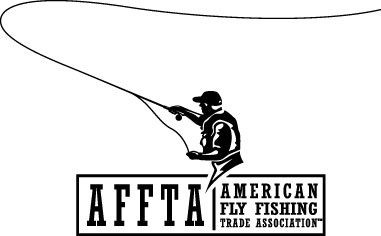 Statement of Benjamin H. Bulis, president and CEO of the American Fly Fishing Trade Association (AFFTA), for the Senate Committee on Small Business and Entrepreneurship hearing entitled, “An Examination of Proposed Environmental Regulation’s Impacts on America’s Small Businesses”, May 19, 2015.
Statement of Benjamin H. Bulis, president and CEO of the American Fly Fishing Trade Association (AFFTA), for the Senate Committee on Small Business and Entrepreneurship hearing entitled, “An Examination of Proposed Environmental Regulation’s Impacts on America’s Small Businesses”, May 19, 2015.
Good afternoon, Mr. Chairman and members of the Subcommittee. I appreciate the opportunity to provide testimony in support of the Clean Water Act at the hearing today. I had the good fortune to be born and raised in the beautiful state of New Hampshire. I have fished around the U.S. and the world, but the rivers and streams of New Hampshire will always stay close to my heart. Now I have the great fortune to live and work in Bozeman, Montana, and the fishing is not too bad there either, as you may have heard!
AFFTA represents the business of fly fishing which includes manufacturers, retailers, outfitters and guides across the nation, who all share the same bottom line: furthering the sport and industry of fly fishing. This cannot be accomplished without clean water and vibrant fisheries habitat. The formula that drives AFFTA is very simple: Access to healthy habitat creates recreational opportunity that drives economic activity and jobs.
Our industry provides the waders, rods, guides and boats that 47 million sportsmen and women utilize every time they step foot in their favorite piece of water. Their quality of experience, and thus our return sales to enhance those days, is dependent on access to clean water.
I am here to express our support for the Army Corps of Engineers and the Environmental Protection Agency’s efforts to restore protections for our nation’s headwater streams and wetlands under the Clean Water Act. Simply put, the draft clean water rule is well crafted and appropriate, it should be allowed to move through the federal rulemaking process with support of Congress.
Here’s why. The small waters to which this important draft rule applies are the lifeblood for many of our country’s prized fisheries. The health of these headwaters sets the tone and benefits for all waters downstream, supporting and creating even the backbone of our nation’s marine resources. They flow into rivers, streams and lakes that provide the foundation of our industry, thus eventually concluding the voyage in our oceans–our industry’s viability depends on intact watersheds, cold, clean rivers and streams and healthy, fishable habitat.
Given that fishing in America supports approximately 828,000 jobs, results in nearly $50 billion annually in retail sales and has an economic impact of about $115 billion every year (Sportfishing in America an Economic Force for Conservation, American Sportfishing Association, 2013), it stands to reason that the health of our nation’s waters is vital to the continued success of our industry, and to the health of America’s economy. We urge you to allow the rulemaking process to continue unimpeded, carefully review the final rule when it comes out, and then determine what, if any, legislative action is warranted. We owe it to the more than one million Americans who took the time to comment on the proposal to allow the process to reach a conclusion. More than 80% of those who commented on the proposal were in favor of it. Such strong support for clean water and healthy watersheds is what our members experience every day as we interact with our customers across the Nation.
If we fail to protect our headwater streams and wetlands, we may destroy the $200 billion annual economy of the hunting and fishing industry, as well as put 1.5 million people out of work. Of those 1.5 million jobs…many are located in rural areas with limited economic opportunities and few other employment options. Some of the best trout water in the lower 48 is located here in Montana, where our entire state population just recently broached a million residents. Because of access and quality of those trout waters…world-wide fly fishing companies such as Simms, RL Winston, Montana Fly Company and Bozeman Reel Company have decided to set up shop in our relatively rural location…and employ hundreds of people in the process. If those jobs are compromised due to a lack of clean water, what options do those employees have in our rural economies across the nation?
AFFTA members from the White Mountains of New Hampshire, the Coast of Louisiana, the Olympic Peninsula in Washington, the Florida Key, the Front Range of Colorado and the remote outfitters in Alaska are all funding their local economies by clean water and healthy fisheries. From the flies to the rods to the rain jackets for the guides rowing clients down the river…none would be possible without clean water.
In recent years, participation in fly fishing has grown. We are seeing robust interest in our sport and it is translating to our sales, to the numbers of employees we hire right here in America, and to the health of brick-and-mortar retailers all over the country. The fly fishing industry is the epitome of small business, the sustainable domestic industry is dependent on clean fishable water.
But, in addition to being acutely interested in the health of our watersheds, we are also concerned that blocking this rulemaking process could turn back the clock on the progress our nation has made since the Clean Water Act was put into place more than 40 years ago. Today, rivers that were once polluted are home to remarkable runs of steelhead, salmon and brown trout. Streams that were once uninhabitable for native brook trout are now home to robust populations of these prized fish. What’s more, our country’s drinking water is healthier and safer.
Please consider the present state of our watersheds before interfering in a proven process that has generated more than 800,000 comments from the public in support of this rule. While we understand that politics these days can be tumultuous and rancorous, we strongly encourage you not to play politics with clean water.
Again, on behalf of AFFTA, I appreciate the opportunity to testify today and I’d like to also thank this committee and staff for their continued service to our Nation.
Sincerely,
Benjamin H. Bulis




1 Comment
Thank you, Benjamin. It’s great to see AFFTA taking a leadership role in such matters so important to us all. This letter is well written and spot on. Lead on!